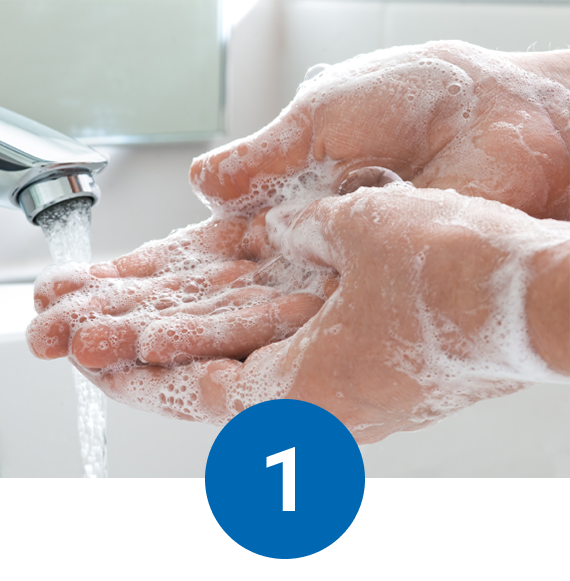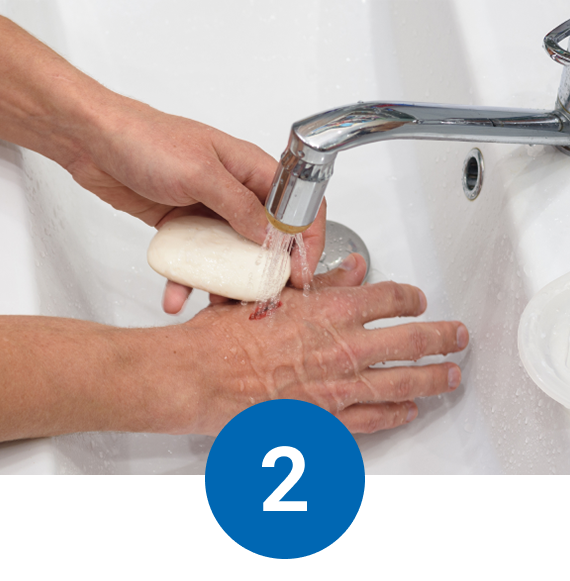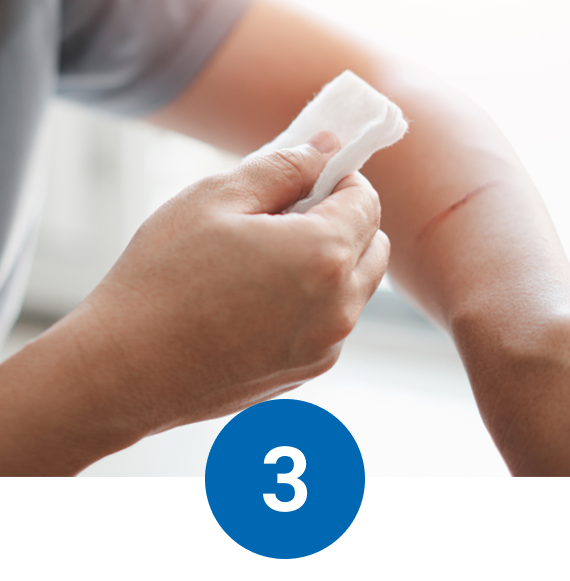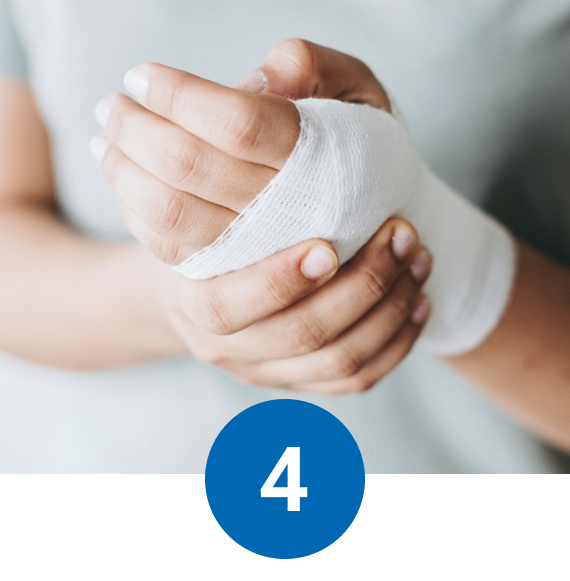Wound Care Essentials
In life, stacks happen. First aid and wound care are important skills for when accidents or emergencies occur, especially for parents due to children's vulnerability to accidents. In emergencies, panic often leads to ineffective actions or inaction. While first aid and might seem intimidating, being prepared with the right tools and knowledge can go a long way in providing effective immediate care when it matters.
Contents of This Page
Wound Care Essentials
In life, stacks happen. First aid and wound care are important skills for when accidents or emergencies occur, especially for parents due to children's vulnerability to accidents. In emergencies, panic often leads to ineffective actions or inaction. While first aid and might seem intimidating, being prepared with the right tools and knowledge can go a long way in providing effective immediate care when it matters.
First Aid Essentials
It is important to be prepared when accidents happen. Some common first aid essentials every household should have include an antiseptic and a wound care gel.
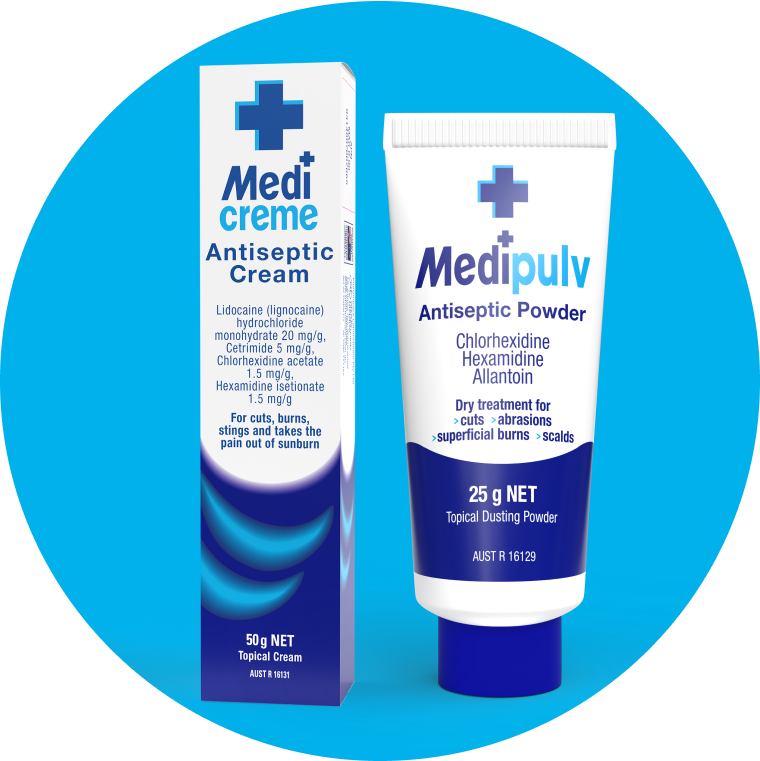

Antiseptics Creams and Powders
Antiseptics are agents that inhibit or kill microorganisms on skin and tissue, preventing or limiting infections.
In a first aid kit, they're essential because they help cleanse and disinfect wounds.
First aid antiseptics can come in different formats, such as an antibacterial cream or a powder, which both have different use cases. Learn more about the difference between antiseptic creams and powders here.
Wound Care Gels
Wound care gels are topical formulations designed to promote a moist wound healing environment, reduce pain, and protect the wound from contaminants.
IIn a first aid kit, they are important because they promote faster wound healing, help to prevent infections and may help reduce the sensation of pain and discomfort. Some wound care gels, such as MediGel, also helps to reduce the appearance of scarring.
Having a wound care gel on hand ensures that minor injuries can be treated promptly, reducing the risk of complications and promoting faster recovery.
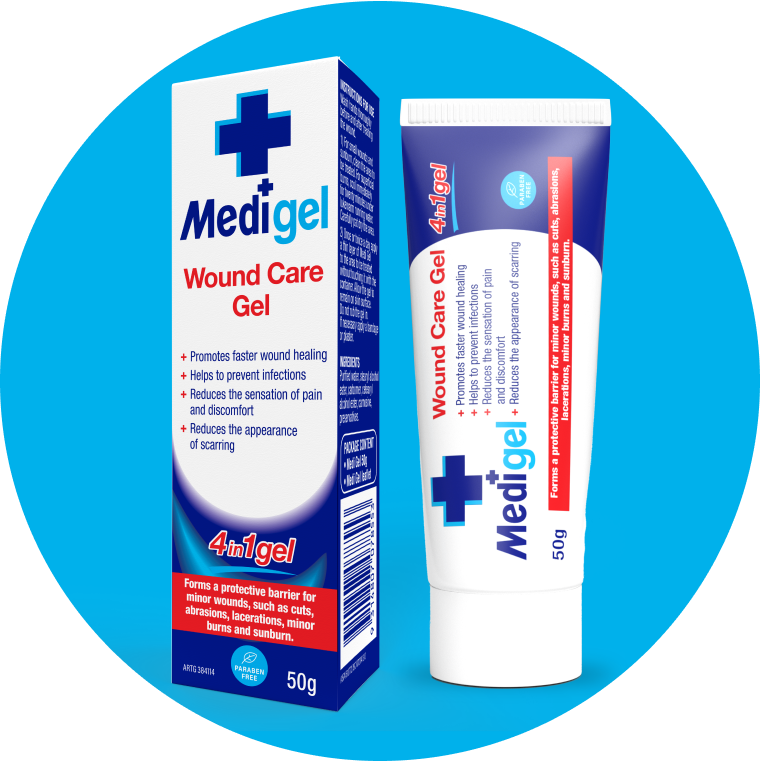

Medi has a range of first aid essentials for your first aid kit, including antibacterial cream, antiseptic
powder and wound care gel. You can learn more about what else to include in a first aid kit here.
First Aid Essentials
It is important to be prepared when accidents happen. Some common first aid essentials every household should have include an antiseptic and a wound care gel.
Antiseptics Creams and Powders
Antiseptics are agents that inhibit or kill microorganisms on skin and tissue, preventing or limiting infections.

In a first aid kit, they're essential because they help cleanse and disinfect wounds.
First aid antiseptics can come in different formats, such as an antibacterial cream or a powder, which both have different use cases. Learn more about the difference between antiseptic creams and powders here.
Wound Care Gels
Wound care gels are topical formulations designed to promote a moist wound healing environment, reduce pain, and protect the wound from contaminants.

In a first aid kit, they are important because they promote faster wound healing, help to prevent infections and may help reduce the sensation of pain and discomfort. Some wound care gels, such as MediGel, also helps to reduce the appearance of scarring.
Having a wound care gel on hand ensures that minor injuries can be treated promptly, reducing the risk of complications and promoting faster recovery.
Medi has a range of first aid essentials for your first aid kit, including antibacterial cream, antiseptic powder and wound care gel. You can learn more about what else to include in a first aid kit here.




